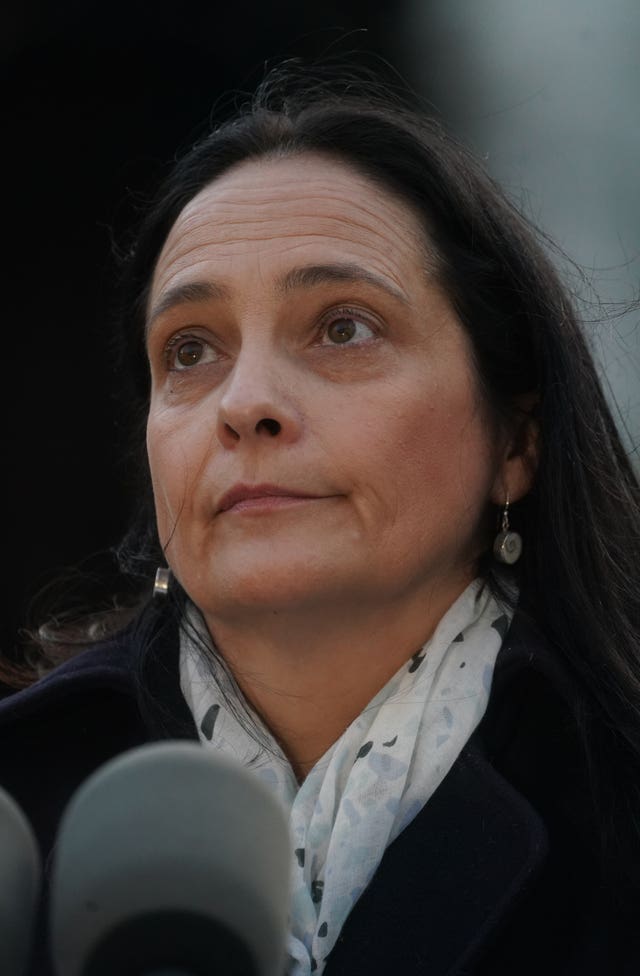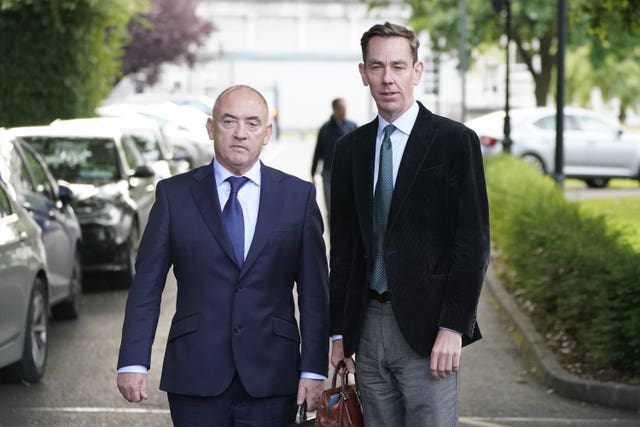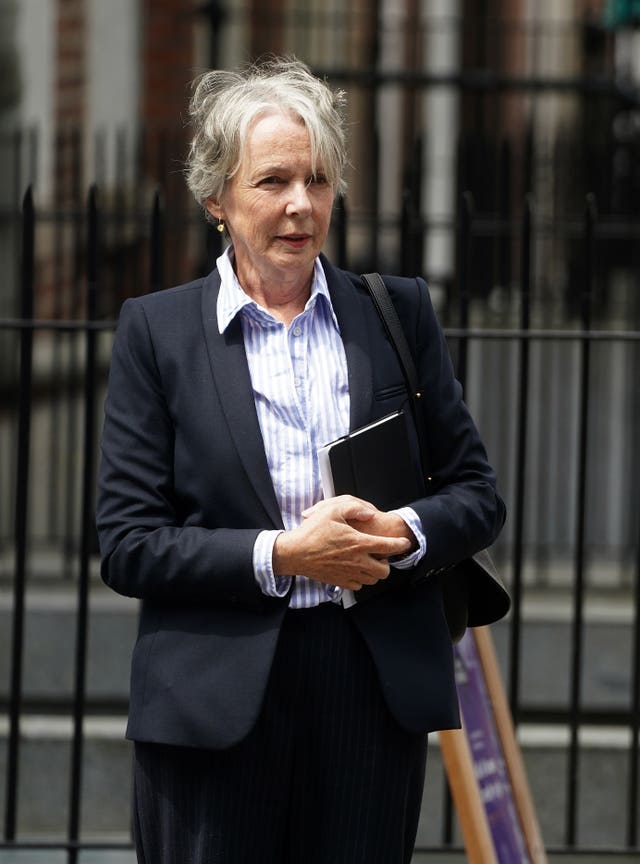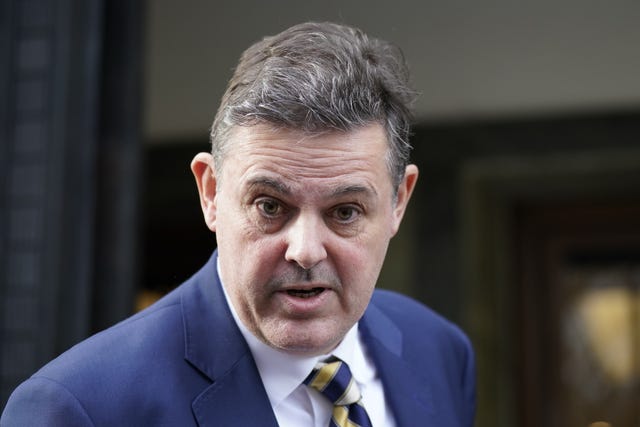RTE negotiating 400,000 euro exit payment for individual, says chairman
Terence O’Rourke made his comments as he was appearing before a parliamentary committee on Wednesday.

RTE is negotiating an exit payment of up to 400,000 euro for an individual, the broadcaster’s new chairman has revealed.
Appearing before the Oireachtas Media Committee on Wednesday, Terence O’Rourke said the package had not yet been “signed off” but that the process could end up at a figure of around 400,000 euro.
Mr O’Rourke confirmed to Fine Gael TD Brendan Griffin that exit package proposals from RTE had come before the board since he took over the role in March.

Mr Griffin specifically asked if exit packages in excess of 400,000 euro were still being proposed, the chairman replied: “I don’t know the number but it could be at that level, yes.”
Mr Griffin said: “That won’t sit well with the public, I’m sure.”
Mr O’Rourke replied: “I understand that, deputy.”
He said he could not go into details for legal reasons around confidentiality – including whether it was someone who had previously declined to appear before the committee.

Mr O’Rourke defended the practice of exit packages in the context of strict employment law in Ireland, and added that exit packages would be published in RTE’s annual report.
Asked if the minister was aware of the potential payment, he said she had been informed a “number of months” ago.
Mr Griffin also expressed concerns that there was “something very wrong within the HR department” of RTE.
Elsewhere in the committee, Mr O’Rourke said fixing the financing of RTE was one of the biggest concerns raised by the broadcaster’s new chair when he first met the media minister.
He further described the current TV licence collection system as “archaic and out of date”.

Minister for Media Catherine Martin has committed to making a decision on reforming the funding of RTE before the Dail summer recess.
Some options reported to be under consideration are direct exchequer funding or a new broadcasting charge to be collected by Revenue, as opposed to An Post.
The broadcaster was plunged into crisis in June last year after it admitted understating the fees for its star presenter and previous top earner Ryan Tubridy.
A series of probing parliamentary committee hearings also uncovered other concerns about culture, governance and financial management at RTE and there have been several high-profile resignations from the board and executive of the station.
A pre-existing steady decline in licence fee revenue was accelerated by the expanding controversy.
RTE operates on a dual-funding model that sees around 55% of its income brought in through the obligatory licence fee, which costs 160 euro a year for Irish households with a television.
Approximately 85% of revenue from TV licence fees goes to RTE to carry out its public service broadcasting commitments, while it also earns money through commercial operations.
The Cabinet is due to sign off on a decision on reforming the funding model for public service broadcasting in the coming weeks.
On Wednesday, Mr O’Rourke appeared before the Oireachtas Committee on Media which was central to probing governance and culture issues at the broadcaster.
He said the board was seeking an “adequate, independent, predictable and reliable” source of funding.
“A licence fee system which is depending on TV sets is archaic and out of date,” he told the committee.
He added: “There are different models out there. I think the current system is not working properly – a household charge would be another example involving public-sector funding.
“There are different ways of doing it, but probably all of those would be better than the current system.”

Asked about his biggest concerns when taking the job, he said: “One would be that the financing model will be fixed.
“That’s a preview of my initial discussion with the minister, that was very clearly an important thing.”
RTE recorded “fictitious” accounting transactions and operated with a “lack of trust” between its board and senior management, according to reports commissioned by Ms Martin.
The reviews and examinations of practices at RTE found its culture was characterised by a “lack of speaking up and good faith reporting”.
They also found there was a lack of trust between the RTE board and its former executive, as well as an informality within board processes and a “limited appetite to learn”.
Mr O’Rourke took over as head of the board from Siun Ni Raghallaigh after she resigned following a public dispute with the minister.
Ms Ni Raghallaigh said she had been left with no option but to quit after being subjected to an “enforced dismissal” after Ms Martin expressed disappointment in her during a live television interview.

The minister said she had been misled about the chairwoman’s role in approving an exit package for a former chief financial officer at the broadcaster.
Ms Ni Raghallaigh has since criticised the minister for “actively taking a hands-off approach” to the scandal at RTE and accused her of not assisting with falling TV licence revenues.
Mr O’Rourke, a former KPMG managing partner, was appointed shortly afterwards.
Asked if he had any concern about the circumstances around his predecessor’s departure, he said: “Whatever happened, happened.”
The chairman said “somebody had to do the job” and added: “I wasn’t there so I don’t know what happened.
“One of the things we agreed very early on with the minister was a protocol of communication.
“So we now have an agreed protocol of things that myself and the minister keep in contact about so it’s very clear.”
Mr O’Rourke also told the committee that RTE has “learned from” controversies around financial mismanagement at the broadcaster.
He also said that the board has “profound disappointment and regret” about events and behaviours which triggered the investigative reports.
Mr O’Rourke said: “The organisation has learned from what happened. The necessary controls and procedures are being put in place to make sure that those kinds of events cannot happen again.”
But he also warned that RTE would be faced with many challenges in a “very disruptive decade ahead”.
Mr O’Rourke said the broadcaster was working on implementing recommendations from the Government reports, which the minister said was a prerequisite for the release of emergency funding.
RTE’s director general Kevin Bakhurst, who assumed the role in the early weeks of the crisis, has also announced a strategic plan for reforming the institution by 2028.
It includes cutting headcount by 400 – a reduction of up to 20% – and a significant increase in investment in the independent production sector.




